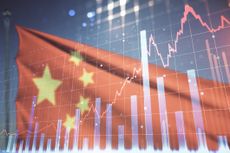Seoul attempts to close the “Korea discount” for stocks
South Korean stocks suffer from the “Korea discount” – with the country still classified as an emerging market, investors are reluctant to pay a premium.


South Korea is planning to close the “Korea discount”, says Joori Roh for Reuters. Companies in Asia’s fourth-biggest economy have lower valuations than comparable businesses in other markets because of “low dividend payouts” and the “dominance of opaque conglomerates known as chaebols”.
Foreign investors have long complained about onerous administrative requirements to trade in Seoul and a lack of corporate information in English. South Korean firms also “confirm dividend amounts weeks after the so-called ex-date” (the day a stock starts trading without the value of its next dividend), making it difficult for income investors to calculate their returns.
South Korea is still classified as an emerging market by index provider MSCI. Indeed, its stocks account for 11.5% of the MSCI Emerging Markets index, much to the chagrin of the country’s politicians. In June MSCI again declined to upgrade Seoul to developed-market status, says Dave Sebastian in The Wall Street Journal. Poor accessibility for global investors and tight curbs on short-selling are hampering the market. Seoul has taken steps to liberalise its currency market, but it will need to do much more to secure an upgrade by MSCI. That could trigger $44bn in foreign inflows into local stocks, says Goldman Sachs.
Subscribe to MoneyWeek
Subscribe to MoneyWeek today and get your first six magazine issues absolutely FREE

Sign up to Money Morning
Don't miss the latest investment and personal finances news, market analysis, plus money-saving tips with our free twice-daily newsletter
Don't miss the latest investment and personal finances news, market analysis, plus money-saving tips with our free twice-daily newsletter
Local assets could do with a lift. The Kospi stock index is down 20% this year, while the won is at a 13-year low against the US dollar. The won’s fall has been driven by a trade deficit that reached a record high in August, says Sam Kim on Bloomberg. Higher energy and commodity prices have swollen the import bill, while semiconductor shipments fell 7.8% last month. Car-makers also face new “headwinds” as Washington offers generous subsidies to US electric-vehicle firms.

Alex is a member of the UK team at CVC Capital Partners. Prior to joining CVC, Alex worked in the London office of AEA Investors, a mid-market private equity firm. Previously he was part of the UK M&A team at Barclays Capital. Alex holds a BSc in economics from the University of Warwick.
-
-
 Number of ISA millionaires tops 4,000
Number of ISA millionaires tops 4,000The number of ISA millionaires has surged to more than 4,000 - what does it take to hit the seven-figure sum?
By Katie Binns Published
-
 NS&I August Premium Bonds draw - check from today
NS&I August Premium Bonds draw - check from todayNS&I bond investors can check from today to see if they scooped a prize in this month’s draw. With more than £404m to be handed out in prizes, find out what you won.
By Tom Higgins Published
-
 The highest yielding S&P 500 Dividend Aristocrats
The highest yielding S&P 500 Dividend AristocratsTips Dividends are a key component of investment returns in the long-term. A portfolio of dividend aristocrats is a great way to build wealth and a sustainable income stream.
By Jacob Wolinsky Published
-
 2023 will be a bumper year for stocks. Here’s how to play the rally
2023 will be a bumper year for stocks. Here’s how to play the rallyTips Dominic Frisby explains why he thinks the market rally could have further to run in 2023 despite macroeconomic headwinds
By Dominic Frisby Published
-
 China’s post-covid investment boom off to a slow start. Should you still invest in China?
China’s post-covid investment boom off to a slow start. Should you still invest in China?Advice Investors are no longer bullish on the China shop but the gloomy consensus on Beijing’s economy might be unfair. Should you invest in China?
By Kalpana Fitzpatrick Last updated
-
 UK stock market opening times: when will the stock market close for Christmas?
UK stock market opening times: when will the stock market close for Christmas?News Here is everything you need to know about UK stock market opening times during the Christmas period of 2022.
By Rupert Hargreaves Published
-
 Stock market crash? This time it’s (slightly) different
Stock market crash? This time it’s (slightly) differentOpinion The bears expecting a stock market crash have got it wrong, says Max King.
By Max King Published
-
 3 UK shares to buy yielding up to 17%
3 UK shares to buy yielding up to 17%Tips 3 UK shares top stocks to buy now, according to Alex Harvey of Momentum Global Investment Management.
By Rupert Hargreaves Published
-
 Invest in Brazil as the country gets set for growth
Invest in Brazil as the country gets set for growthCover Story It’s time to invest in Brazil as the economic powerhouse looks set to profit from the two key trends of the next 20 years: the global energy transition and population growth, says James McKeigue.
By James McKeigue Published
-
 Shining a light on India
Shining a light on IndiaAdvertisement Feature Despite some short-term challenges, India remains very attractive for investors. Here’s why.
By moneyweek Published









